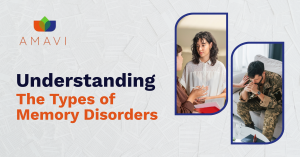Definition and Importance of Integration
Integration is the process of incorporating insights, emotions, and transformative experiences gained during psychedelic therapy sessions into one’s daily life. In the context of Ketamine-Assisted Psychotherapy (KAP), integration is the critical phase that ensures the profound breakthroughs achieved in therapy lead to lasting personal growth and emotional healing.
During a KAP session, patients may experience altered states of consciousness, heightened introspection, and access to repressed memories or emotions. These experiences, while powerful, can feel disjointed or overwhelming when returning to the familiar routine of daily life. Integration bridges this gap, helping individuals make sense of their experience and apply the lessons learned to foster meaningful change.
Without integration, the therapeutic effects of ketamine can fade, and the individual may struggle to incorporate the newfound insights. Exploring how ketamine interacts with the brain to promote neuroplasticity and healing highlights why integration is so crucial. Proper integration strengthens the therapeutic alliance, enhances emotional resilience, and promotes long-term mental health stability, making it an indispensable component of psychedelic therapy.
Steps for Integrating KAP Sessions into Daily Life
- Reflect and Journal: After a KAP session, setting aside time for quiet reflection helps consolidate insights. Journaling thoughts, emotions, and vivid imagery from the session can clarify what was experienced and highlight areas for further exploration.
- Develop an Intention-Based Plan: Patients are encouraged to revisit the intentions set before the session. By aligning their insights with these initial goals, they can identify specific actions to integrate their experience into everyday life.
- Engage in Grounding Practices: Activities such as meditation, yoga, or spending time in nature help anchor the emotions and ideas from the session. These practices create a stable foundation to process and embody the changes.
- Participate in Follow-Up Therapy: Post-session integration therapy is a cornerstone of KAP. These sessions provide a structured space to discuss and interpret the experience, ensuring it aligns with ongoing therapeutic goals.
- Share with Trusted Individuals: Whether it’s with a therapist, support group, or close friend, sharing the experience reinforces its significance and creates opportunities for new perspectives.
- Adopt Supportive Lifestyle Changes: Insights gained during KAP often highlight the need for changes in lifestyle, relationships, or self-care routines. Implementing these changes can magnify the benefits of the therapy.
Therapist’s Role in Integration
Therapists are vital in guiding patients through the integration process. Their expertise helps patients navigate the emotional and psychological complexities of post-session insights.
- Facilitating Reflection: Therapists encourage patients to articulate their experiences, offering frameworks to interpret the symbolic or emotional content of their session.
- Promoting Emotional Processing: Patients may encounter unresolved trauma or challenging emotions. Therapists provide a safe, nonjudgmental environment for these feelings to be explored and understood.
- Tailoring Strategies to the Individual: Integration is not a one-size-fits-all process. Therapists use techniques such as cognitive-behavioral therapy (CBT), mindfulness, and somatic experiencing to address each patient’s unique needs.
- Encouraging Self-Efficacy: Through integration, therapists empower patients to take ownership of their healing journey, fostering a sense of agency and resilience.
- Maintaining Continuity of Care: Integration doesn’t end after a single session. Therapists provide ongoing support to help patients adapt to the evolving impacts of their therapy.
Real-Life Success Stories from Integration
- Sarah’s Journey from Depression
- Sarah, a 35-year-old struggling with treatment-resistant depression, found her first KAP session overwhelming yet revealing. During integration therapy, her therapist helped her unpack the symbolic imagery of a recurring dream she had during the session. Through journaling, goal-setting, and follow-up therapy, Sarah used these insights to rebuild her confidence and address longstanding relationship issues.
- John’s Path to Healing from Trauma
- John, a 46-year-old PTSD survivor, described his ketamine experience as a profound “reset.” With the guidance of his therapist, John explored childhood traumas that surfaced during his session. Through grounding exercises and regular integration meetings, he transformed his relationship with these memories, reducing their emotional grip.
These success stories illustrate how integration amplifies the healing potential of KAP, turning momentary breakthroughs into sustained recovery.
Benefits of Ongoing Therapeutic Practices
- Enhanced Emotional Resilience: Regular integration practices strengthen emotional regulation, enabling patients to better navigate life’s challenges and stressors.
- Sustained Mental Health Improvements: Integration solidifies the neuroplastic changes initiated during KAP, creating long-term improvements in mood, cognition, and behavior.
- Deepened Self-Awareness: Patients develop a more profound understanding of their emotional and psychological landscapes, fostering personal growth and self-acceptance.
- Improved Relationships: By addressing unresolved issues and adopting healthier communication patterns, patients often report enriched relationships with family, friends, and colleagues.
- Greater Engagement with Life: As insights from KAP become integrated, patients find renewed purpose and motivation, leading to a more fulfilling and meaningful life.
Integration is the cornerstone of effective psychedelic therapy, transforming the fleeting insights of a KAP session into enduring personal growth. Through structured reflection, therapist-guided support, and intentional lifestyle changes, integration ensures that the profound experiences of ketamine therapy have lasting, tangible benefits.
The stories of individuals like Sarah and John highlight the transformative potential of a well-integrated KAP experience. By embracing the integration process, patients can move beyond temporary relief to achieve a deeper, more sustainable sense of well-being.
As KAP continues to revolutionize mental health care, the emphasis on integration will remain pivotal, guiding patients toward a future of healing, resilience, and self-discovery. Whether through journaling, grounding practices, or therapeutic support, integration turns insights into action, helping patients unlock the full potential of their journey with psychedelic therapy.





